Best Free Metaverse Games In 2025



Editorial Note: While we adhere to strict Editorial Integrity, this post may contain references to products from our partners. Here's an explanation for How We Make Money. None of the data and information on this webpage constitutes investment advice according to our Disclaimer.
Best free metaverse games in 2025:
Gods Unchained: earn and trade NFT cards in a strategy card game.
CryptoKitties: breed and sell virtual cats as NFTs for Ethereum.
Neon District: earn and sell NFT on OpenSea or Arkane Market.
Sorare: build fantasy football teams with NFT player cards.
Alien Worlds: explore planets and mine cryptocurrency.
Coin Hunt World: collect Bitcoin and Ethereum in an AR scavenger hunt.
Mist: complete quests and earn NFT items in a fantasy RPG.
Metaverse gaming took off in 2017 with CryptoKitties, but the concept fits any multiplayer online game, even classics like World of Warcraft (2004). While WoW allowed players to earn money, today’s metaverse games lean on blockchain tech and NFTs, featuring in-game characters and items you can trade.
The "play-to-earn" model has skyrocketed their appeal. Unlike traditional AAA games like WoW or EVE Online, which require deep economic knowledge and time to profit, modern NFT games are casual, straightforward, and time-focused. Players can earn without navigating complex in-game markets. This guide highlights the best free-to-play metaverse games, explaining how earning works and providing a detailed, step-by-step walkthrough using a real example.
Best free metaverse games
Metaverse games are online games that integrate blockchain technology, allowing players to own, trade, and earn from in-game assets like NFTs (non-fungible tokens). Unlike traditional multiplayer games, metaverse games give players true ownership of unique digital assets, such as characters, items, or virtual land, which can be sold or traded for cryptocurrency.
Gods Unchained
This is a typical trading card game, which borrowed a lot of its mechanics from Magic: The Gathering and its popular clones such as Hearthstone. A player gets free starter decks of cards and participates in battles with other players. Victories bring new cards and sets. The sets are also given when a player reaches a new level, which happens when they get enough experience points for their participation in battles.
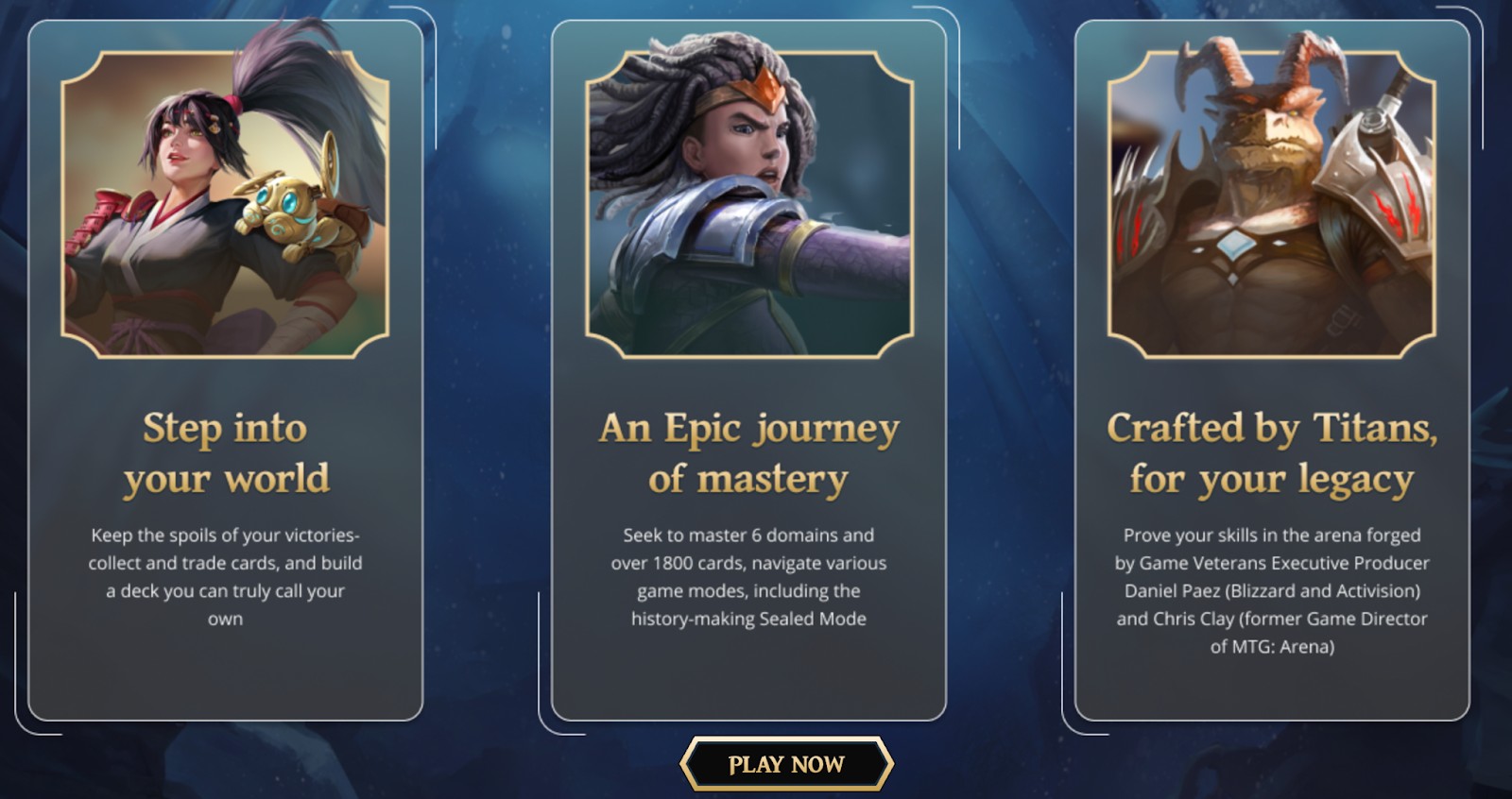
All cards in this metaverse game are NFTs. They can be bought or sold in the in-game stores or popular marketplaces. By selling a card or set, a player gets GODS, which is the platform’s native token. It can be withdrawn to an external wallet or exchanged for fiat currency and then transferred to a bank card.
CryptoKitties
This is the first metaverse game of the “play-to-earn” type. At the time of its release, it had no analogs but now it has several dozens of clones. The main mechanism is breeding virtual cats. The first pair can be taken for free in the in-game marketplace. Earlier, it used to be paid. Two cats can create a third one. Cats differ in generations and innate abilities that are determined by the innate abilities of their parents and some random factors.
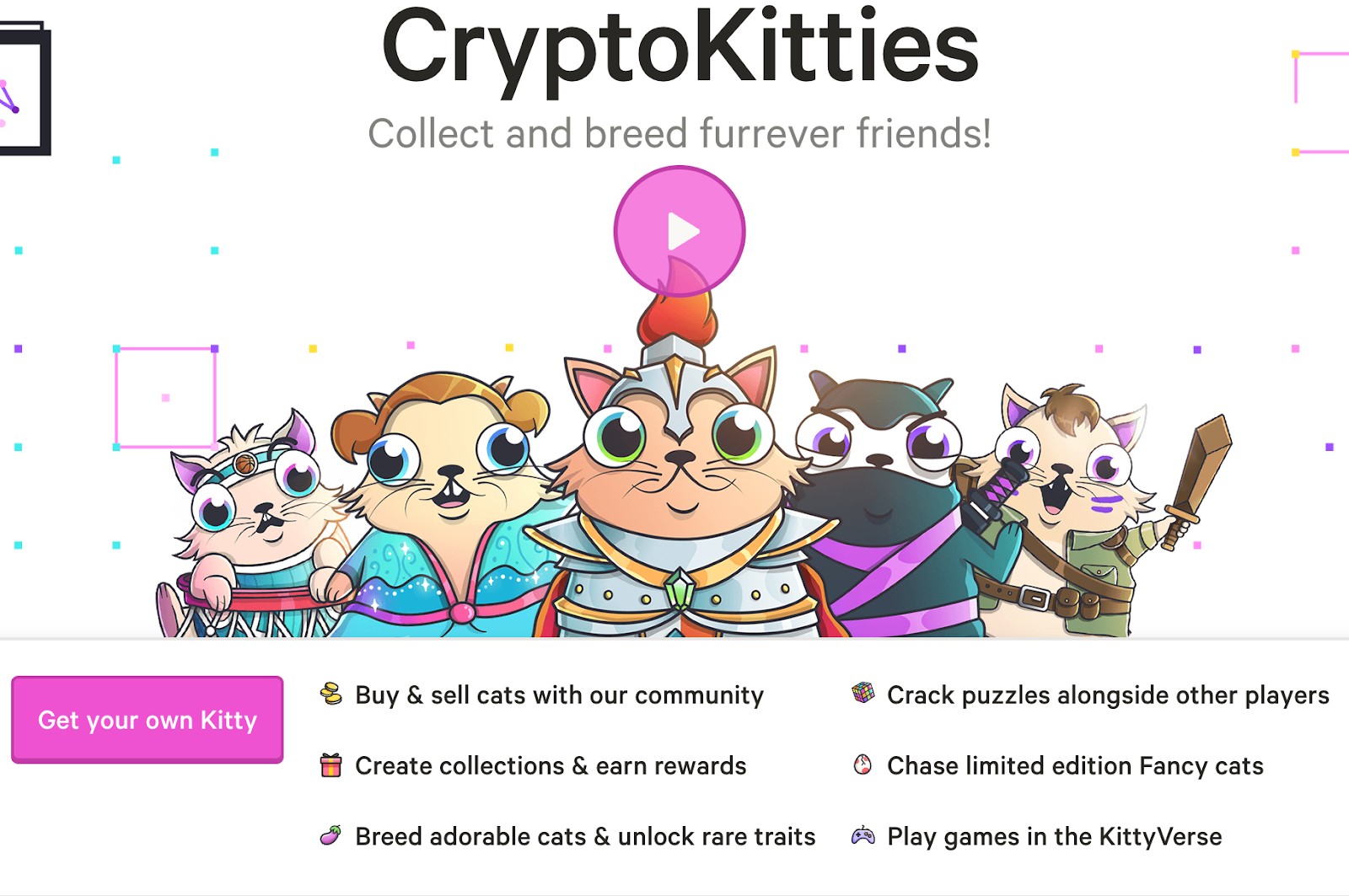
An example of such an ability is a quick reload. A reload is the time that has to pass between a cat’s participation in the acts of producing its young. The more abilities a cat has and the higher its generation, the more original offspring it’s able to produce and the higher its price. Cats can be sold in the course of playing or in the marketplaces for Ethereum cryptocurrency that may be withdrawn to an external wallet.
Neon District
This is the first RPG in which every character and object is an NFT. A user plays for a team of pizza delivery men in the dystopian future of cyberpunk. Players are given a free first character and 300 units of the local currency with which to buy three more characters (he must have a team of four). There are several game modes, including PvP with other players.
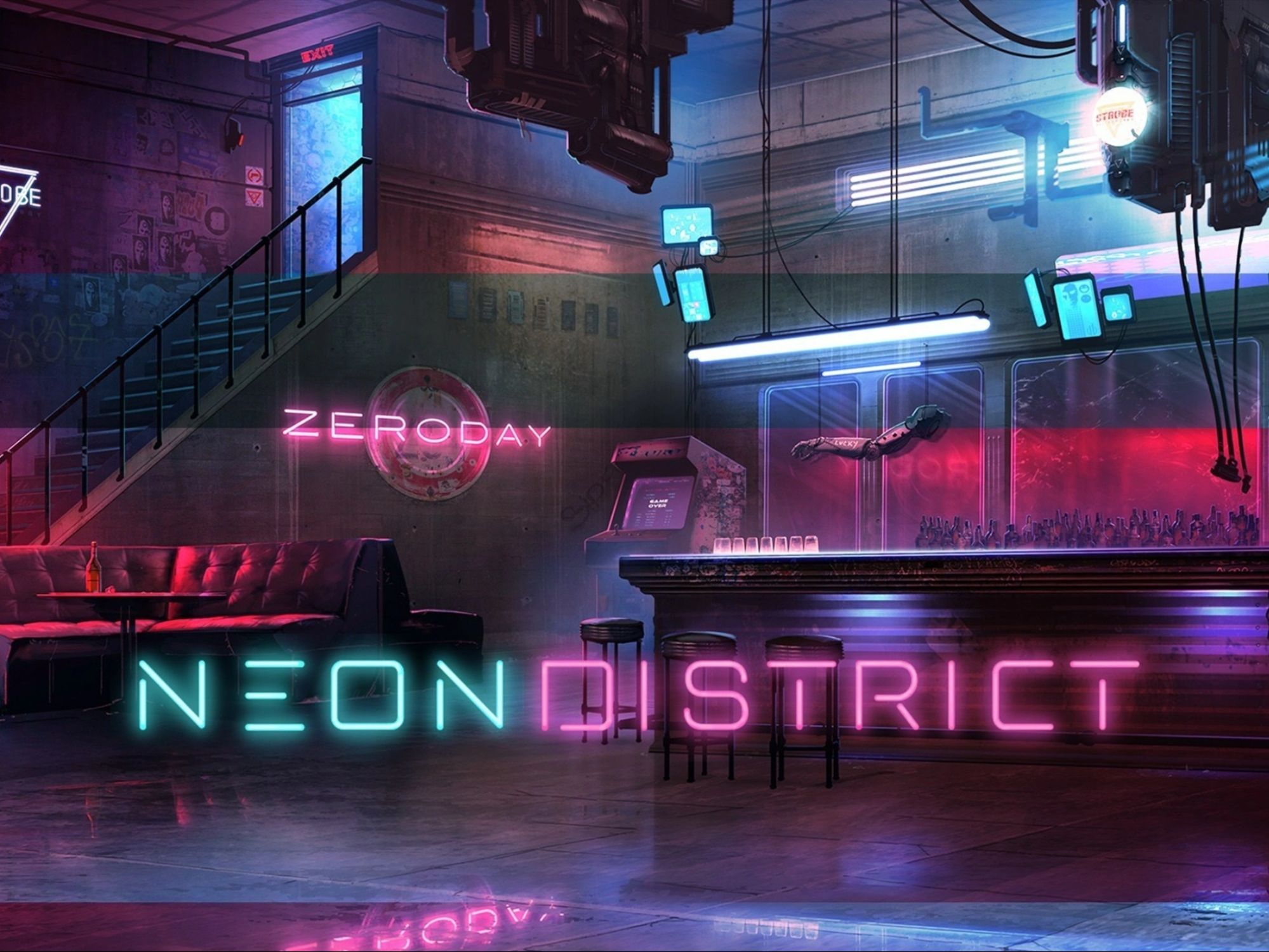
For completed missions and wins in battles, a player receives the in-game currency Neon, and his characters are promoted to a higher level. With Neon, you can buy stronger characters, body armour, and weapons to carry out missions at more difficult levels with higher rewards. Then, high-level characters and their gear, which are NFTs, can be sold for cryptocurrency in the OpenSea or Arkane Market.
Sorare – Fantasy football
This is a casual sports manager, which presently offers only football but the company has already signed an agreement with Major League Baseball, so one more trend is going to be added soon. The main mechanics are the following: a user collects virtual player cards, builds a team, and participates in tournaments that are based on the cards’ features and some random factors.

Sorare is special in that all the cards are dedicated to real football players, and each card is an NFT. The first 5 cards are free, and the rest can be bought for Ether in the in-game marketplace where players can also sell their cards. New cards are given for wins in tournaments and events. Ether may be withdrawn to an external wallet.
Alien Worlds
This is a rather interesting project, which differs from the others in that it essentially is a platform for staking the WAX cryptocurrency. Regarding the genre, it’s a science-fiction strategy for the exploration of other planets. At the start, a user can mine some WAX to buy the Atomic Hub equipment for field development.
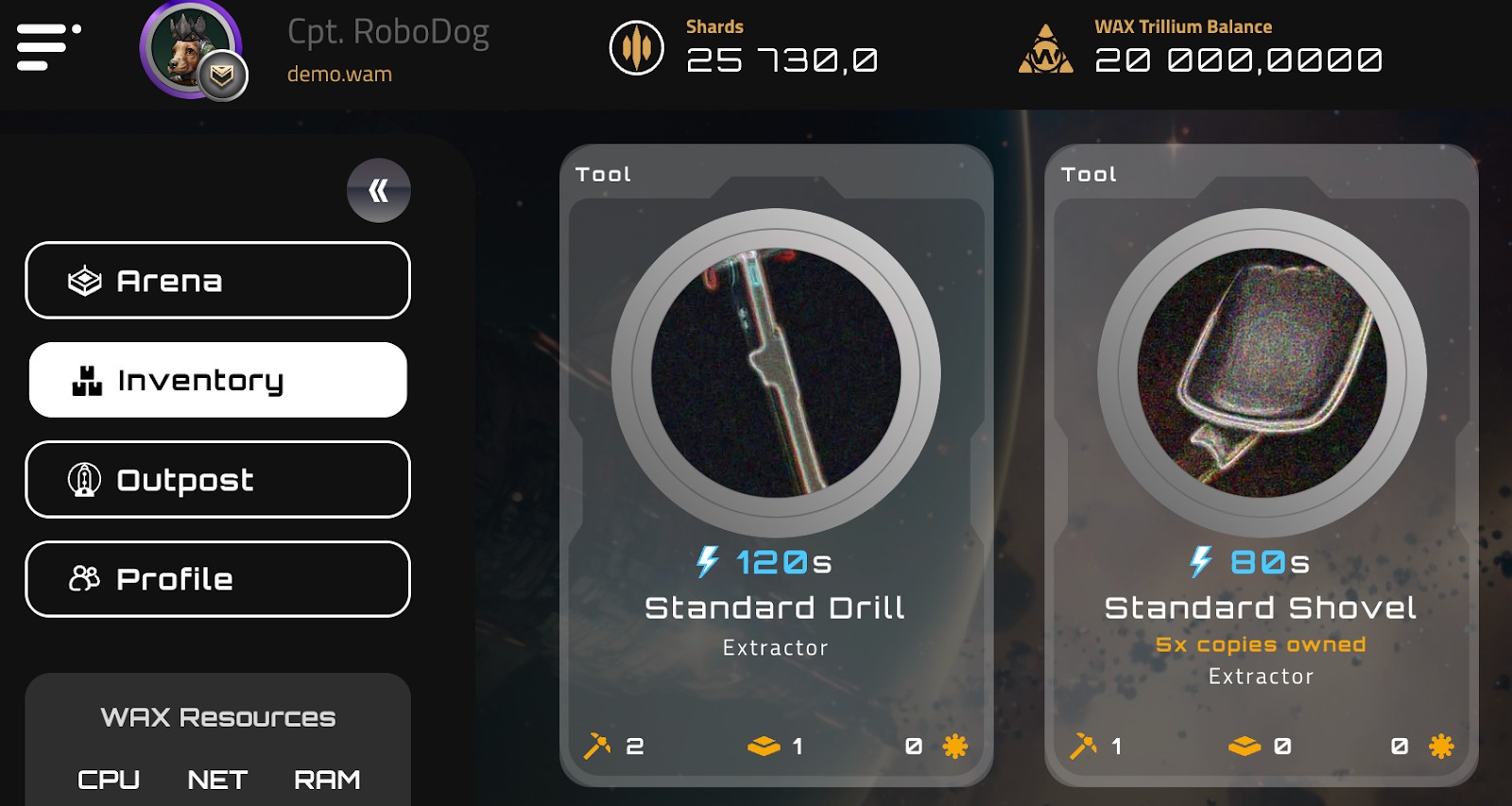
Later, he discovers new planets and mines WAX from them. In exchange for WAX, the user modernizes his mining facilities. This game has many additional options but all of them are aimed at staking cryptocurrency. The earned WAX can be withdrawn to an external wallet at any time.
Coin hunt world
This is another unique project that allows you to play to earn. It’s similar to the viral Pokemon GO. Here, a player also has to walk around the city but instead of looking for Pokemon, he looks for special keys. The keys allow him to open storage, which he needs to find as well. The storages contain in-game objects, as well as Bitcoins and Ether.

There’s little cryptocurrency in each separate storage but if the player actively explores the city, he can earn a lot. Plus, there are Cubes in the game. They are virtual creatures that can be found in storage places or crafted by using the resources of those storages. The Cubes are NFTs. One can sell their NFTs for cryptocurrency and then withdraw it.
Mist
This classic RPG in a fantasy setting is one of the few AAA titles among the metaverse games. It’s completely free. A player creates a character, chooses a class for him, and gets into a large open world. There, he takes on quests, goes through dungeons with other players, and combats in PvP.
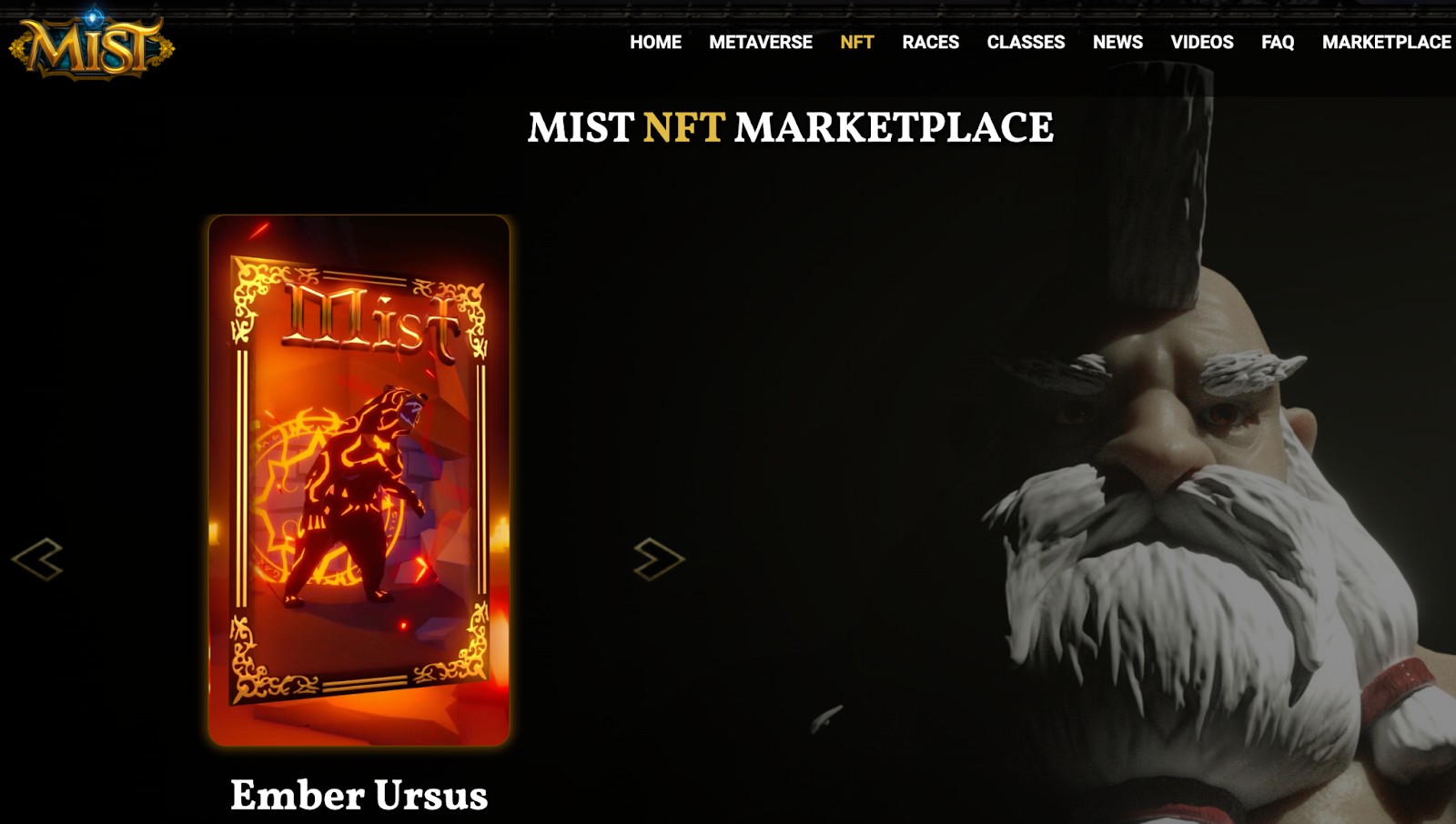
For his achievements such as getting to a higher level or defeating his boss, the player receives the MIST token, which is traded on crypto exchanges. Also, top outfit items and pets serve as NFTs. They are bought and sold while playing and in the marketplaces. This game may be supplemented with new mechanics.
Types of metaverse games
Metaverse games offer immersive virtual environments where players can engage, socialize, and participate in various activities. These games are divided into several categories:
Social interaction games. These games focus on social experiences, enabling players to create avatars, build virtual spaces, and communicate with others in real time.
Play-to-earn (P2E) games. Players can earn digital assets or in-game currencies by participating in gameplay, which can be traded or sold in real-world marketplaces.
Virtual real estate games. These games allow players to purchase, develop, and monetize virtual land, creating economic ecosystems within the game.
Augmented reality (AR) games. These games merge digital and real-world experiences by overlaying digital content on physical environments through devices like smartphones or AR glasses.
Massively multiplayer online (MMO) games. These games feature expansive virtual worlds where large numbers of players can interact, collaborate, and compete in various missions or challenges.
Simulation and building games. These games provide creative platforms where players can design, construct, and explore virtual worlds, fostering innovation and collaboration.
How to play metaverse games?
Metaverse games vary in mechanics and earning methods, so there isn’t a universal guide. Let’s break it down using Gods Unchained, a popular, free-to-play metaverse game for PC. Here’s how to get started:
Set up. Create a crypto wallet like MetaMask. Register on the Gods Unchained website, download the game client, and sign in using your credentials.
Training mode. Start with the training mode to understand the interface and gameplay. You’ll receive free card decks to begin playing.
Solo mode. Practice against AI by selecting the “Solo” mode. Choose from the six free starter decks, such as Nature or Light, and customize your aesthetic loadout (non-essential for gameplay).
Gameplay basics. Play against the computer to get familiar with mechanics. Cards are drawn into your hand as the game progresses, and the objective is to strategize and win.
Level up. Earn points through battles, even if you lose. Leveling up unlocks new cards, which can be traded in the marketplace using the platform’s cryptocurrency.
Trade and strengthen. Sell unwanted cards and buy stronger ones to enhance your deck. Experiment with different combinations to climb the ranks.
Earn and withdraw. Accumulate the in-game currency (GODS) and withdraw it to your crypto wallet. From there, convert it to other tokens like Ether or cash it out to fiat currency through exchanges.
Following these steps will help you earn money, improve your skills, and develop gaming strategies. Also, to make a profit from games, you need to choose a reliable crypto exchange. This will allow you to quickly and safely withdraw the tokens you earn. We have compiled a list of platforms that have a good reputation and offer a wide range of cryptocurrencies.
| OKX | Kraken | Crypto.com | CoinMetro | Ledger Wallet | |
|---|---|---|---|---|---|
|
Coins Supported |
329 | 278 | 250 | 72 | 1817 |
|
Demo |
Yes | No | No | Yes | No |
|
Min. Deposit, $ |
10 | 10 | 1 | 1 | No |
|
NFT |
Yes | Yes | Yes | No | No |
|
P2P Maker Fee, % |
0 | Not supported | 0,10 - 0,16 | 0,1 | No |
|
P2P Taker Fee, % |
0 | Not supported | 0,16 - 0,20 | 0,2 | No |
|
Spot Taker fee, % |
0,1 | 0,4 | 0,5 | 0,2 | 0 |
|
Spot Maker Fee, % |
0,08 | 0,25 | 0,25 | 0,1 | 0 |
|
Open an account |
Open an account Your capital is at risk. |
Open an account Your capital is at risk. |
Open an account Your capital is at risk. |
Open an account Your capital is at risk. |
Open an account Your capital is at risk. |
Focus on player engagement and long-term value in metaverse games
As someone deeply involved in exploring metaverse gaming, I often emphasize the importance of choosing games that prioritize player engagement and long-term rewards. While flashy features and instant earnings might attract attention, games with a robust economy and active community offer greater potential for sustained growth and profits.
When diving into metaverse games, I recommend looking for projects with transparent tokenomics and well-defined earning mechanisms. It's also crucial to diversify your portfolio by exploring games across genres to understand which aligns best with your skills and interests. For instance, strategy games like Alien Worlds can provide steady income through staking, while trading card games like Gods Unchained reward tactical thinking.
Many players dive in expecting quick returns but miss the nuances that differentiate casual gaming from earning opportunities. Take time to explore game mechanics, test strategies, and engage with the community—it’s this investment in understanding that often leads to success in the metaverse gaming world.
Conclusion
Metaverse games offer an immersive gaming experience while enabling players to earn through NFTs, in-game tokens, and marketplace trades. As blockchain technology continues to shape the gaming industry, free-to-play metaverse games have become popular due to their engaging mechanics and real-world earning potential. Whether you prefer strategy, RPG, or simulation games, the metaverse gaming ecosystem has something for everyone. To succeed, focus on games with transparent tokenomics, active communities, and well-defined reward systems. Dive in, explore new worlds, and build a profitable gaming portfolio.
FAQs
What are metaverse games?
Today, this concept implies multiplayer video games in which characters and/or in-game objects are non-fungible tokens (NFTs).
What types of metaverse games are there?
Metaverse games are available on browsers, smartphones, game clients, and multiple platforms. They come in paid and free versions across genres like RPGs, strategy, and simulation.
How to play to earn on metaverse games?
Each game has unique mechanics. In trading card games, players build decks, compete, earn valuable cards, sell them for in-game currency, and withdraw profits to a bank card via an external wallet.
Why do metaverse video games have good prospects?
With over five years of growth, NFT games are now played by millions and are integral to the metaverse. Expert predictions and statistics confirm the market's continued expansion.
Related Articles
Team that worked on the article
Alamin Morshed is a contributor at Traders Union. He specializes in writing articles for businesses that want to improve their Google search rankings to compete with their competition. With expertise in search engine optimization (SEO) and content marketing, he ensures his work is both informative and impactful.
Chinmay Soni is a financial analyst with more than 5 years of experience in working with stocks, Forex, derivatives, and other assets. As a founder of a boutique research firm and an active researcher, he covers various industries and fields, providing insights backed by statistical data. He is also an educator in the field of finance and technology.
As an author for Traders Union, he contributes his deep analytical insights on various topics, taking into account various aspects.
Mirjan Hipolito is a journalist and news editor at Traders Union. She is an expert crypto writer with five years of experience in the financial markets. Her specialties are daily market news, price predictions, and Initial Coin Offerings (ICO).
Ethereum is a decentralized blockchain platform and cryptocurrency that was proposed by Vitalik Buterin in late 2013 and development began in early 2014. It was designed as a versatile platform for creating decentralized applications (DApps) and smart contracts.
Bitcoin is a decentralized digital cryptocurrency that was created in 2009 by an anonymous individual or group using the pseudonym Satoshi Nakamoto. It operates on a technology called blockchain, which is a distributed ledger that records all transactions across a network of computers.
Forex leverage is a tool enabling traders to control larger positions with a relatively small amount of capital, amplifying potential profits and losses based on the chosen leverage ratio.
Cryptocurrency is a type of digital or virtual currency that relies on cryptography for security. Unlike traditional currencies issued by governments (fiat currencies), cryptocurrencies operate on decentralized networks, typically based on blockchain technology.






























































































































